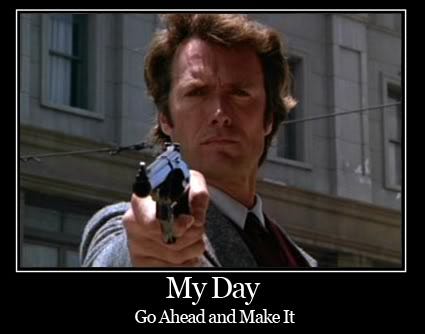Feeling Certain About Firearms — On Doctoring — Medium

Feeling Certain About Firearms
Study these two quotes, both gleaned from the vast internet opinionsphere, and consider what they have in common.
“The Government wants your guns, not to protect you, but to protect themselves from you…Things are about to get really bad, really soon in this country and our guns are our last, best hope of surviving it and having any control over what rises out of the ashes. We lose our guns and liberties’ dim light will finally go out with them.”
and
“Violence does not work anymore, not even in the heart of a society devoted to violence. Resistance movements here at home are hindered, not helped, by weaponry. The government does not want your guns; it wants your obedience. It’s not afraid of your assault weapons; it’s afraid of your noncooperation. An abusive government has no cause for concern as long as people believe that violence is the field on which to compete.”
Besides addressing the same topic, these statements are about as diametrically opposed as possible – one writer views guns as our only defense against tyranny and the other sees them as a hindrance to liberty. What is similar is the tenor of the statements – one of certainty. Both authors are pretty darn sure they are right. But should they be?
There is a medical condition called blindsight. Patients with blindsight have had a stroke to a particular area of the brain called the visual cortex and report complete blindness in a portion of their visual field. However, since the patient’s optic nerve is still functioning, these people can still receive sesnory input in their blind field, and, if tested, will be able to correctly “see” objects that they are absolutely convinced they cannot. In other words, they are “certain” they are blind, but they are almost certainly wrong. Why? Well, according to neurologist (and Marin resident) Robert A. Burton in his book On Being Certain, this is because “certainty is a mental sensation,” not unlike fear or anger, “rather than evidence of fact.” And, furthermore, argues Burton, conviction is not a choice, and “because the feeling of knowing seems like the confirmation of knowledge, we tend to think of it as a product of reason.” This feeling actually has a biologic and evolutionary benefit because if we humans were to spend all of our time not knowing what to do, we would be quite ineffective at pursuing activities (like breeding and feeding) that further the human race. Thus, my own certainty that jumping off the Golden Gate Bridge is a bad idea seems quite likely to confer me a survival advantage.
Notwithstanding the clear benefit of feeling certain about some things, Burton and others would have us recognize the fallacy of the link between logic and certainty. In this, there are important implications. Take the debate over the public health issue of firearm violence. It’s been widely noted that many gun owners and NRA members actually favor many proposed restrictions and regulations on access to firearms. For example, a recent survey-based study by Barry et al. published in the New England Journal of Medicine indicated many firearm policy areas where NRA members and non-member are in agreement. Among survey respondents identifying themselves as gun owners, 80% agreed with the idea of “Prohibiting a person convicted of a serious crime as a juvenile from having a gun for 10 years.” As for non-gun owners, 84% agreed with the same statement. Seventy-percent of NRA members were also in concurrence with this proposal, and 74% of them (and 84% of gun owners) supported background check systems on all gun purchases.
The ideological conflict about firearms, however, boils down, as things often do in our country, to extremes. There are those who are “certain” that the government is after their freedom or “certain” that the “gun rights nuts” can never be reasoned with. This debate and others would be well served if we would all recognize that certainty (even our own) is a sensation (like that of blindsight) that is beyond conscious control. Anyone who is sure that the government is or is not coming after their guns might benefit from a moment of introspection and consideration of probabilities.
And this is just as true for scientists as it is for laypeople. Writes Burton
in the introduction to his upcoming book A Skeptic’s Guide to the Mind, “For neuroscientists and philosophers, as with the rest of us, the visceral feeling of knowing you are right is far more convincing than the thought that we have limits to our powers of reason. “ So, take a moment to read those two quotes again. By the way, the first is from http://www.dailypaul.com/ and then second is from http://www.michaelmoore.com/. Knowing this, are you certain one is right and one is not? If the answer is “yes,” take a moment to separate that mental sensation from the reasoning of probabilities. We would all do well to heed Burton’s advice about such situations…“We must learn (and teach our children) to tolerate the unpleasantness of uncertainty. Science has given us the language and tools of probabilities.”…”we do not need and cannot afford the catastrophes born out of a belief in certainty.”
In the aftermath of Newtown, the culture of the debate about firearm violence has shifted, and a potential for consensus on some aspects of the problem now exists. But, I feel certain that more progress can be made.
